Chinese president Hu Jintao stressed the importance to maintain stability in the country in a keynote speech delivered to the gathering of CPC members at the 90th founding anniversary.
Chinese President Hu Jintao today delivered a keynote speech at a grand gathering of party members to celebrate the 90th anniversary of the Communist Party of China, saying that to maintain stability in the country remains as a critically important task.
Following is the full text of the speech:
Comrades and Friends,
Today, together with the entire Party and the people of all ethnic groups in China, we are holding this grand meeting here to commemorate the 90th anniversary of the founding of the Communist Party of China (CPC) and also to review the great course of China's development and progress and look ahead at the bright future of development and prosperity for the country.
The CPC was founded 90 years ago today, which was an epoch-making event in the history of the Chinese nation. From then on, the Chinese people embarked on the bright road of striving for independence and liberation and began the glorious pursuit of prosperity and strength for the country and themselves.
Over the past 90 years, Chinese Communists and the people of all ethnic groups in China have, through indomitable struggles, achieved major successes in revolution, development and reform. Today, a vibrant socialist China has emerged in the East, and the 1.3 billion Chinese people are forging ahead full of confidence under the great banner of socialism with Chinese characteristics to realize the great rejuvenation of the Chinese nation.
Comrades and Friends,
In the 170 plus years since the Opium War of 1840, our great country has weathered untold hardships, our great nation has waged earthshaking struggles, and our great people have scored splendid achievements in the annals of history.
Following the Opium War, China gradually became a semi-colonial and semi-feudal society, and foreign powers stepped up their aggression against China. The feudal rule became increasingly corrupt, the country was devastated by incessant wars and turbulence, and the Chinese people suffered from hunger, cold, and oppression. To salvage China from subjugation was an urgent mission for the Chinese nation. And the Chinese people faced the historic tasks of winning independence and liberation, and making China strong and prosperous.
In those dark years, in order to change the destiny of the Chinese nation, the Chinese people, led by many leading figures with lofty ideals, waged unyielding struggles to explore a new future against great odds. Not resigned to fate, the Chinese people launched one struggle after another, such as the Taiping Heavenly Kingdom Movement, the Reform Movement of 1898, and the Yihetuan Movement, but all these struggles ended in failure. The Revolution of 1911 led by Dr. Sun Yat-sen put an end to the autocratic rule that had existed in China for several thousand years. This revolution greatly boosted China's social progress, but it did not change the country's nature as a semi-colonial and semi-feudal society or end the misery of the Chinese people.
Facts have shown that neither the mission of striving for national survival nor the historic task of fighting imperialism and feudalism could be accomplished by reformist self-improvement movements which did not touch the foundation of feudal rule, old-style peasant wars, revolutions led by bourgeois revolutionaries, or other attempts to copy Western capitalism. To find a way of achieving China's development and progress, one must, first of all, find an advanced theory that can guide the Chinese people in their revolution against imperialism and feudalism, and an advanced social force must rise that can lead social changes in China.
In 1921, the CPC was born in the process of integrating Marxism-Leninism with the Chinese workers' movement. The birth of the CPC was a natural product of the development of modern and contemporary Chinese history as well as the indomitable exploration of the Chinese people for survival of the nation. The birth of the CPC put the Chinese revolution on the right course, gave the Chinese people a powerful motivation and created bright prospects for China's future development.
Over the past 90 years, our Party has united with and led the Chinese people in writing a grand epic in the history of human development on this ancient land of China, evidenced in three earthshaking events.
The first is that our Party, firmly relying on the people, completed the new-democratic revolution, winning national independence and liberation of the people. The Party and the people fought through the Northern Expedition, the Agrarian Revolutionary War, the War of Resistance Against Japanese Aggression and the War of Liberation in 28 years, during which they defeated Japanese imperialist aggressors, overthrew the Kuomintang reactionary rule and established the People's Republic of China. With the founding of New China, the Chinese people became masters of their country and society and determined their own destiny. China achieved a great transition from a feudal autocracy that was several thousand years old to a people's democracy. Great unity and unprecedented solidarity of all ethnic groups were realized in China. The history of old China being a semi-colonial and semi-feudal society which was like a heap of loose sand was brought to an end once and for all. The unequal treaties imposed on China by imperialist powers and all the privileges they had in China were abolished. The Chinese people stood up, and the Chinese nation entered a new era of development and progress.
The second is that, firmly relying on the people, our Party completed the socialist revolution and established the basic socialist system. We creatively achieved the transition from New Democracy to socialism, therefore creating a socialist society for a quarter of the world's population in this large country in the East, and brought about the most extensive and profound social changes in Chinese history. We established industrial and economic systems that were independent and fairly complete, and we gained important experience of building socialism in China, a country with backward productive forces.
The third is that, firmly relying on the people, our Party carried out a great new revolution of reform and opening up, creating, upholding, and developing socialism with Chinese characteristics. Since the Third Plenary Session of the Eleventh CPC Central Committee, we have reviewed China's practices of building socialism and drawn on the experience of other countries. We have embarked on the path of reform and opening up with tremendous political and theoretical courage and courage in practice. Going through an arduous process of trial and error, we have formed the Party's basic theory, line and platform and gained basic experience in the primary stage of socialism, established a socialist market economy and constantly improved it, made China fully open, and made world-renowned progress in the socialist modernization drive.
These three major events reshaped the future and destiny of the Chinese people and the Chinese nation. They irreversibly ended the misery endured by China in modern times when it suffered from both domestic turmoil and foreign invasion and was poor and weak. They also irreversibly started the Chinese nation's historic march for development, growth, and great rejuvenation. They gave China, a civilization of over 5,000 years, a completely new look and created unimagined prospects for the great rejuvenation of the Chinese nation.
The profundity and the political and social impact of the changes that have taken place in Chinese society and in the destiny of the Chinese people over the past 90 years are rare in the history of human development.
What has happened shows that in the great cause of China's social development and progress since modern times, history and the people have chosen the CPC, Marxism, the socialist road, and the reform and opening up policy.
History has also fully shown that the CPC truly deserves to be called a great, glorious and correct Marxist political party and the core force leading the Chinese people in breaking new ground in development.
Comrades and Friends,
We owe all our achievements over the past 90 years to the tenacious struggles waged by Chinese Communists and the people of several generations. The Party's first generation of central collective leadership with Comrade Mao Zedong at the core united with and led the entire Party and the people of all ethnic groups in achieving the great victory of the new-democratic revolution, establishing the basic socialist system and creating the fundamental political prerequisite and institutional foundation for all development and progress in contemporary China. The Party's second generation of central collective leadership with Comrade Deng Xiaoping at the core united with and led the entire Party and the people of all ethnic groups in starting the great march toward reform and opening up, sounding the bugle of the times for building socialism with Chinese characteristics and ushering in a new period of socialist development. The Party's third generation of central collective leadership with Comrade Jiang Zemin at the core united with and led the entire Party and the people of all ethnic groups in steadfastly carrying out reform and opening up, advancing with the times, guiding reform and opening up to move in the right direction, and successfully ushering the great cause of socialism with Chinese characteristics into the 21st century. Since the Party's Sixteenth National Congress, the Party Central Committee has united with and led the entire Party and the people of all ethnic groups in following Deng Xiaoping Theory and the important thought of Three Represents, fully implementing the Scientific Outlook on Development, energetically promoting scientific development and social harmony, and continuing to advance the great cause of socialism with Chinese characteristics by building a moderately prosperous society in all respects.
At this moment when we are marking the 90th anniversary of the founding of the CPC, we cherish the memory of Mao Zedong, Zhou Enlai, Liu Shaoqi, Zhu De, Deng Xiaoping, Chen Yun and other proletarian revolutionaries of the older generation who contributed so much to China's revolution, development, and reform and to the founding, consolidation, and growth of the CPC. We cherish the memory of revolutionary martyrs who gave their lives in founding, defending, and building New China. We also cherish the memory of all the forerunners who struggled tenaciously for the independence and liberation of the Chinese nation in modern times. Their tremendous contributions to China and the Chinese nation will go down in the annals of history.
On behalf of the CPC Central Committee, I wish to pay high tribute to workers, farmers, and intellectuals throughout China, to the democratic parties, people's organizations, and patriotic figures from all walks of life, and to the People's Liberation Army, People's Armed Police Force, and public security police. I would also like to extend sincere greetings to our compatriots in the Hong Kong Special Administrative Region, the Macao Special Administrative Region, and Taiwan and to overseas Chinese. Lastly, I wish to express cordial thanks to all the foreign friends and people of other countries who are friendly to the Chinese people, and view favorably and support China's revolution, development, and reform endeavors.
Comrades and Friends,
We have embarked on the path of socialism with Chinese characteristics, formed a system of theories of socialism with Chinese characteristics and established a socialist system with Chinese characteristics. These achievements made over 90 years of endeavors, innovation, and enrichment, should be valued, upheld on a long-term basis and continuously built upon by our Party and people.
The path of socialism with Chinese characteristics is the only way for China to achieve socialist modernization and create decent lives for its people. In taking the path of socialism with Chinese characteristics, we should, under the leadership of the CPC and bearing China's basic national conditions in mind, pursue economic development as the central task, uphold the Four Cardinal Principles, be committed to the reform and opening up policy, free and develop the productive forces, strengthen and improve the socialist system, promote the socialist market economy, socialist democracy, an advanced socialist culture, and a harmonious socialist society, and make China a prosperous, strong, democratic, culturally advanced and harmonious modern socialist country.
The system of theories of socialism with Chinese characteristics is sound, which guides the Party and people in realizing the great rejuvenation of the Chinese nation as they advance along the path of socialism with Chinese characteristics. The Party has consistently integrated the basic tenets of Marxism with the specific conditions of China, and it has made two great theoretical achievements in the historical process of adapting Marxism to China's conditions. One is Mao Zedong Thought, which represents the application and development of Marxism-Leninism in China. Mao Zedong Thought has resolved in a systematic way the issue of how to accomplish the new-democratic revolution and socialist revolution in China, a big semi-colonial and semi-feudal country in the East, and made painstaking effort to explore the issue of what kind of socialism China should build and how to build it, thereby making new and creative contributions to enriching Marxism. The other theoretical achievement is the system of theories of socialism with Chinese characteristics. This is a scientific theoretical system consisting of Deng Xiaoping Theory, the important thought of Three Represents, the Scientific Outlook on Development and other major strategic thoughts. It has systematically addressed a series of significant issues, such as what kind of socialism China, a large developing country of over one billion people, should build and how to build it; what kind of party we should build and how to build it; and what kind of development China should achieve and how to achieve it. The system of theories of socialism with Chinese characteristics represents the continuation and development of Mao Zedong Thought.
The socialist system with Chinese characteristics, which fully embodies the distinctive features and strengths of socialism with Chinese characteristics, is a fundamental institutional guarantee for development and progress of contemporary China. In the course of promoting the self-improvement and self-development of the socialist system, we have put in place a complete set of integrated, interconnected systems in the economic, political, cultural, and social fields. They include the following: the system of people's congresses which is China's fundamental political system; the basic political systems which include the system of multiparty cooperation and political consultation under the leadership of the CPC, the system of regional ethnic autonomy, and the system of community-level self-governance; the socialist system of laws with Chinese characteristics; the basic economic system with public ownership being the leading sector and economic entities under diverse forms of ownership developing together; and specific economic, political, cultural, and social institutions based on the fundamental political system, basic political systems and the basic economic system. These systems and institutions are compatible with China's reality and conform to the trend of the times. They keep the Party and country full of vitality and fully tap the enthusiasm, initiative, and creativity of the people and all sectors of society. They serve to free and develop the productive forces and promote all-around economic and social development. They uphold and promote fairness and justice and aim to bring prosperity to all. They make it possible to pool resources to undertake major national initiatives, and they can effectively defuse risks and meet challenges on our road ahead. They serve to maintain ethnic solidarity, social stability, and national unity.
We are facing drastic changes in the world and arduous tasks of promoting reform and development and maintaining stability in China. For our Party to unite with and lead the people in forging ahead, make new progress in its work and win new victories for its cause, it must hold high the great banner of socialism with Chinese characteristics, keep to and expand the path of socialism with Chinese characteristics, uphold and enrich the system of theories of socialism with Chinese characteristics, and adhere to and improve the socialist system with Chinese characteristics.
Comrades and Friends,
Looking back at China's development and progress over the past 90 years, we have naturally come to this basic conclusion: Success in China hinges on the Party.
A review of its 90 years of development shows that the following are essential for our Party to preserve and develop its advanced nature as a Marxist political party: The Party should free up the mind, seek truth from facts, advance with the times, take a scientific approach toward Marxism, use Marxism as an evolving theory to guide practice in new realities, uphold truth, correct mistakes, blaze new trails, and maintain the motivation that enables the Party to forge ahead in a pioneering spirit. It should serve the people, rely on them, work for their benefit with heart and soul, draw on their wisdom and strength, and always maintain close ties with them. The Party should appoint officials on their merits, attract as many talents as possible, use our cause to inspire, train, and cultivate high-caliber personnel, constantly absorb new blood, and maintain its vitality at all times. The Party should police itself and impose strict discipline on its members, face its own serious problems and resolve them in a timely manner and thus keep its soundness.
The entire Party must be keenly aware that at a time of profound changes in global, national and intra-Party conditions, we are now faced with many new developments, problems, and challenges in our effort to enhance the Party's leadership and governance and its ability to resist corruption and degeneration and to withstand risks, and strengthen its governance capacity and advanced nature. We are facing long-term, complicated and severe tests in governing the country, in implementing reform and opening up and in developing the market economy, as well as tests in the external environment. And the whole Party is confronted with growing danger of lacking in drive, incompetence, divorce from the people, lacking in initiative, and corruption. It has thus become even more important and urgent than ever before for the Party to police itself and impose strict discipline on its members.
We must recognize the new realities, continue to guide Party building with scientific theories, study and solve major theoretical and practical issues in Party building in a spirit of reform and innovation, focus on building a moderately prosperous society in all respects and accelerating socialist modernization, fully appreciate and apply the law governing the development of Marxist ruling parties, promote comprehensive progress in the great new undertaking of Party building, and make Party building more scientific.
To make Party building more scientific under the new historical conditions, we must continue to free up our minds, seek truth from facts, advance with the times, adapt Marxism both to China's conditions and to the current times, and make it known to the general public so as to raise the ideological and political awareness of the whole Party.
The Party's growth over the past 90 years shows that theoretical maturity is the basis for political conviction, advancing with the times theoretically is a prerequisite for forging ahead in action, and unity of thinking is an important guarantee for the whole Party to march in step. We Chinese Communists believe that the basic tenets of Marxism are an irrefutable truth and that Marxism must be constantly enriched and developed as practice changes, and we never take Marxism as an empty, rigid, and stereotyped dogma. For Marxism, practice is the source of its theory, the basis for its development, and the criterion for testing its truth. Any actions that stick to dogma, ignore practice, or overstep or lag behind real life will not succeed. We made mistakes and even suffered severe setbacks in some historical periods, and their root cause was that the guiding principles of the Party at the time were divorced from the real conditions in China. It was only by restoring and upholding the line of seeking truth from facts that the Party was able to correct its mistakes, overcome its setbacks and forge ahead triumphantly by relying on its own strengths and those of the people. The experiences and lessons our Party has learned in this regard are reviewed systematically in the Resolution on Certain Questions in the History of Our Party and the Resolution on Certain Questions in the History of Our Party Since the Founding of the People's Republic of China. We must never forget these experiences and lessons.
The development of practice, cognition of the truth, and innovation of theories know no boundary. The practice of the Party and the people keeps progressing, so should the theories guiding it. The path of socialism with Chinese characteristics will definitely be expanded through the innovative practice of the Party and the people, and the system of socialism with Chinese characteristics will surely continue to improve as we deepen reform and open up wider. This process will certainly open up broad prospects for theoretical innovation. In upholding Marxism under the new historical conditions, it is important to promptly address new issues emerging in practice and thus provide scientific guidance for practice. We should have a correct understanding of the global development trend and China's basic condition of being in the primary stage of socialism, find out more about the features of China's development at the current stage, review the new experience gained in a timely manner by the people led by the Party, and create new theories with the focus on major issues concerning economic and social development, so as to ensure the vitality of scientific theories.
Every step forward in theoretical innovation should be accompanied by progress in arming Party members with such new theoretical innovation. This is an important experience the Party has gained in improving itself. To build a Marxist political party committed to learning, we must lose no time in studying all scientific, new ideas and new knowledge in human society. All Party members and cadres should take learning as an intellectual pursuit, study in an in-depth way and master Marxism-Leninism and Mao Zedong Thought as well as theories of socialism with Chinese characteristics, foster a worldview and methodology of dialectical materialism and historical materialism, and genuinely cultivate virtues, increase knowledge and enhance competence through learning. All the comrades in the Party, especially leading Party cadres at all levels, should constantly improve themselves both ideologically and politically, reinforce our ideals and convictions, and enhance our eagerness and resolve to tirelessly work for the cause of the Party and the people. We should be fully committed to doing so to ensure that we remain firm and faithful in our actions.
To make Party building more scientific under the new historical conditions, we must recruit people on merits without regard to their origins, adhere to the criterion of evaluating cadres in terms of both political integrity and professional ability with priority given to integrity, and encourage outstanding individuals in all fields to join the cause of the Party and country.
The Party's growth over the past 90 years shows that once the political line is adopted, cadres are important in ensuring its success. To place cadres on merits without regard to their origins is dictated by our Party's nature and goal. The only interests the Party has are those of the people, and it does not have special interests for itself. The Party adheres to this lofty principle, and for all those who are loyal to the people, identify themselves with the people and dedicate themselves to the people, the Party provides a big arena to give full play to their talent. Whether the path of socialism with Chinese characteristics can become wider and whether the Chinese nation can achieve its great rejuvenation depend on our success in training and fostering a large number of outstanding personnel, and particularly, in bringing outstanding personnel in all fields to the fore and bringing out their best.
We should open up, with greater vision, determination and courage, channels for recruiting talented personnel, quickly identify outstanding cadres in all fields and put them to good use. We will continue to give top priority to political integrity in placing cadres, and select and place those who have firm political conviction and outstanding performance and are capable and well received by the people. Cadres should be placed in accordance with the principles that integrity should be fostered in self-improvement, in setting an example for others, and in enhancing competence and that integrity should be matched by competence. We will continue to place cadres based on their performance so that capable people are given opportunities and well placed, honest persons are not disadvantaged, those who seek personal gains by acting in a calculating way and currying favor will gain nothing, and all outstanding cadres can dedicate themselves to the Party and the people.
To continuously train a large number of outstanding young cadres is of fundamental importance for carrying on the cause of the Party and the people from generation to generation. To shoulder heavy responsibilities, young cadres must foster a sound worldview and correct views on power and career, and they should be loyal to the Party's cause, be identified with the people, be committed to whatever they do, and constantly improve themselves. Young cadres need to take the initiative to work in hardship areas and complicated environments and take up challenging positions to temper their moral character and work style and improve their ability. When young cadres come to the fore in large numbers who have honed themselves in tough and complicated environments, endured the test of major struggles, and proved themselves outstanding and promising, they will create a great future for the cause of the Party and the people.
Talent is the most important resource and a strategic resource for a country's development. All the comrades in the Party and the whole society should adhere to the major principle of respect for work, knowledge, talent, and creation, imbue themselves with the view that everyone has potential talent to develop, and do not hesitate to use talents for the cause of the Party and the people. We should provide broad platforms to talented persons of all types to pursue their career and fully tap their development potential, and make sure that everyone contributes their due share to the country, the people, and the nation. It is particularly important to speed up the training of talented young people and to ensure that capable people emerge in great numbers and put their talents to best use and that everyone can bring out their best.
To make Party building more scientific under the new historical conditions, we must follow the principle of putting people first and governing for the people, firmly adhere to the Marxist viewpoint on the people, purposefully implement the mass line of the Party, and maintain close ties between the Party and the people.
The growth of the Party over the past 90 years shows that the fact that the Party comes from the people, takes root among the people and serves the people ensures its invincibility. Putting people first and governing for the people is what the Party is all about. It fully embodies the Party's fundamental purpose of serving the people wholeheartedly. It is the ultimate yardstick to guide, assess, and test all governance activities of the Party. All the comrades in the Party must bear in mind that maintaining close ties with the people gives the Party its biggest political asset while alienation from the people poses the greatest risk to the Party after it has gained political power. Therefore, we must always place the people's interests before everything else, and make sure that the aim and outcome of all our work is to realize, uphold and expand the fundamental interests of the overwhelming majority of the people. We must exercise power for the people, identify ourselves with them and work for their interests. This will win us the most extensive, reliable, and solid popular support, which will serve the source of strength for our work.
All Party members must put the people foremost in their minds, respect the people as masters of the house and their creativity, and treat them as teachers. We must ensure that in their growth, our political vision and governance capacity draw inspiration from the creative practices of the people. We should attach great importance to work relating to the people under new conditions and do the job well. We must consult the people on policies, learn about their needs, and seek suggestions from them. We must listen to their views, truthfully reflect their wishes, help alleviate their hardships, and protect their economic, political, cultural, and social rights and interests in accordance with the law. The people will care about and feel close to the Party only when the Party feels the same toward them. Party and government offices at all levels and their officials should be more community-focused in their work, regularly visit communities, and stay close with the people. In this way, we can learn more about the actual conditions of the people, address their concerns, and give them a warm feeling that we care about them. We should take local communities as a training ground for officials and encourage them to forge closer bonds with the people through daily interactions and become better able to serve them. Serving the people and carrying out people-related work should be pursued as the central task of community-level Party organizations and the basic duties of community-based officials. This will enable community-level Party organizations to play a key role in promoting development, serving the people, increasing public cohesion, and promoting harmony.
To make Party building more scientific under the new historical conditions, we must follow the principle of fighting corruption in a comprehensive way, addressing both its symptoms and root causes, and combining punishment with prevention with emphasis on prevention. We must intensify efforts to improve Party conduct, uphold integrity and combat corruption so as to maintain the advanced nature and integrity of the Party as a Marxist political party.
The growth of the Party over the past 90 years shows that cracking hard on and effectively preventing corruption is crucial in gaining popular support for the Party and ensuring its very survival, and it is therefore a major political task the Party must attend to at all times. The Party is soberly aware of the gravity and danger of corruption that have emerged under the conditions of the Party being long in power as well as the need to combat corruption throughout the course of reform, opening up, and socialist modernization. The Party's unequivocal and consistent opposition to corruption and the steady, notable new progress made in fighting corruption and upholding integrity provide an important guarantee for advancing reform, opening up, and socialist modernization. On the other hand, grave challenges and daunting tasks remain in fighting corruption. If not effectively curbed, corruption will cost the Party the trust and support of the people. The whole Party must remain vigilant against corruption, be fully aware that fighting corruption will be a protracted, complicated and arduous battle, and give higher priority to combating corruption and upholding integrity. The Party must demonstrate greater confidence and resolve and take more forceful measures to improve the institutions for punishing and preventing corruption and unswervingly fight corruption.
Leading officials at all levels must bear in mind that our power is entrusted to us by the people and can only be used in their interests. In exercising power, we must serve the people, hold ourselves accountable to them, and readily subject ourselves to their oversight. We must not turn our power into an instrument for making personal gains for a handful of individuals. Officials at all levels must have a keen sense of living up to the people's trust, guarding against wrong doing, and holding themselves to higher standards. We must act in the true Party spirit, ensure integrity, and play an exemplary role in society. One should not forget his origin when in prominent position; he should not abandon the role of public servants once in public post, or use power for personal gains. We must preserve the political integrity of Communists.
To make Party building more scientific under the new historical conditions, we must place power, Party affairs, and Party members under institutional safeguards, improve democratic centralism, and promote Party building in an institutionalized and standardized way and through due process.
The growth of the Party over the past 90 years shows that Party institutions are of fundamental importance in building and running a party with several dozen million members, as such institutions bear closely on the Party's long-term and overall performance and its stable growth. Institutional building must be fully integrated with our efforts to strengthen the Party ideologically and organizationally, improve its style of work, combat corruption and ensure the integrity of the Party. In improving Party institutions, we must set out clear priorities, take a holistic approach, carry on fine traditions while innovating boldly. Our goal is to establish a system of Party institutions which are well coordinated in terms of scope, comprehensive and effective and are governed by rigorous procedures.
In enhancing the building of Party institutions, we should follow the Party Constitution, exercise democratic centralism, adhere to and improve the Party's leadership system, reform and improve its leadership and governance. We should develop intra-Party democracy, promote transparency in Party affairs in an active yet prudent manner, ensure the principal status and democratic rights of Party members, improve the system of Party congresses and the intra-Party electoral system, and improve the mechanism for democratic decision making in the Party. We must safeguard the solidarity and unity of the Party, enhance its creativity and fight arbitrary behavior by individuals and weakness and laxity, which violate the principle of democratic centralism. All the comrades in the Party should bear in mind that all people are equal before the law, that no one has the privilege to overstep institutions and that no exception should be made in enforcing institutional safeguards. We should familiarize ourselves with, strictly apply and conscientiously safeguard Party institutions.
In short, if all the comrades in the Party care about the Party's future, fulfill their responsibility for its growth, and promote Party building with greater vigor, our Party will better keep up with the trend of history, stand firm in the forefront of the times and advance social progress.
via Caijing


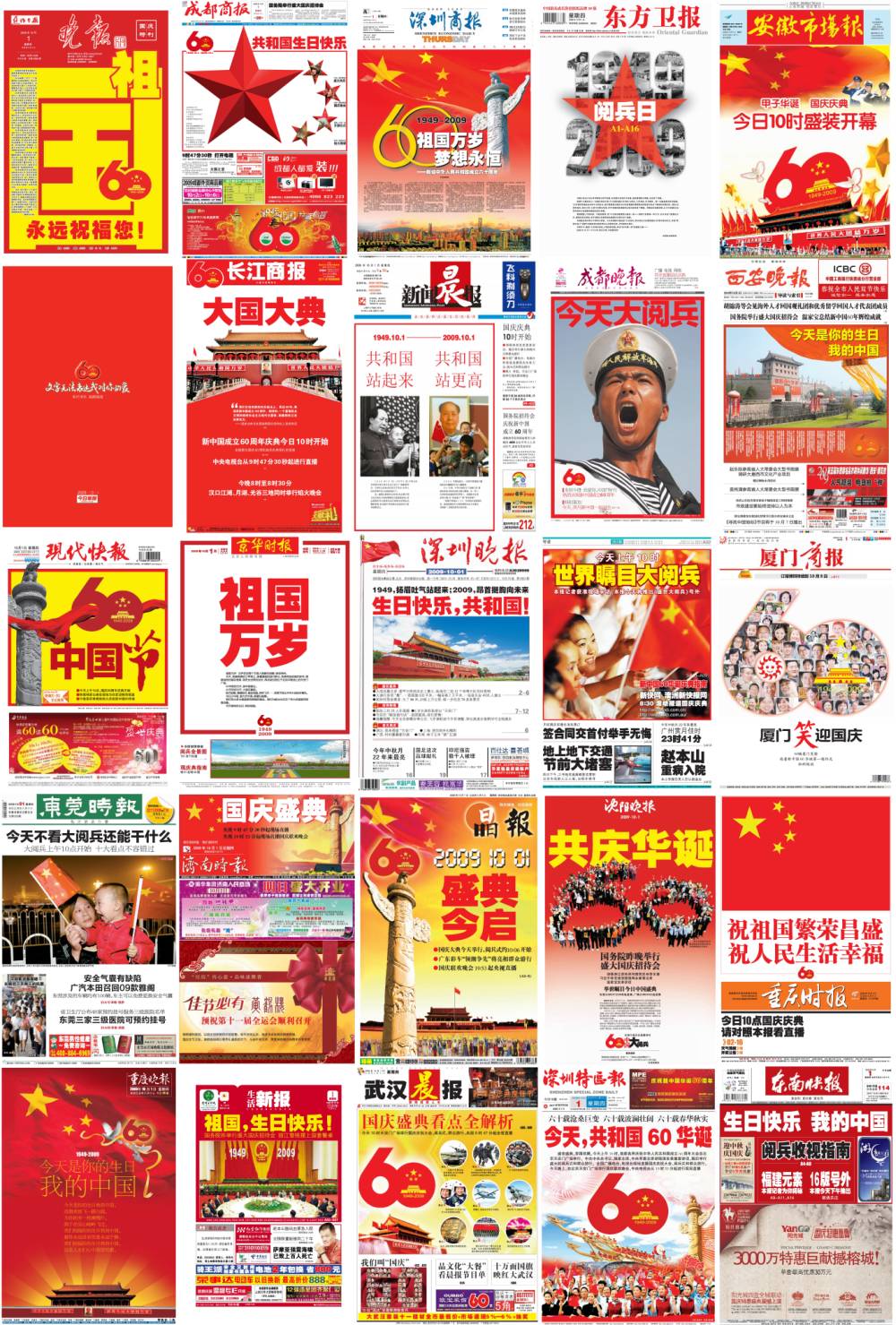
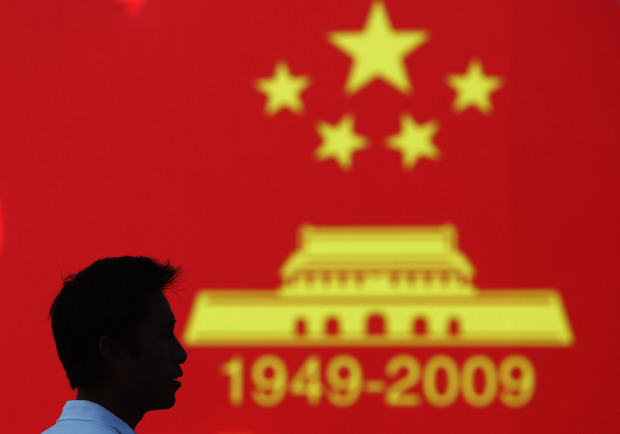
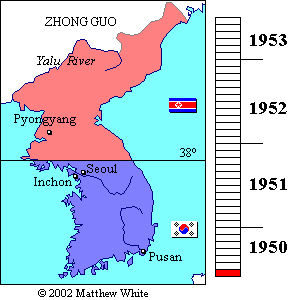
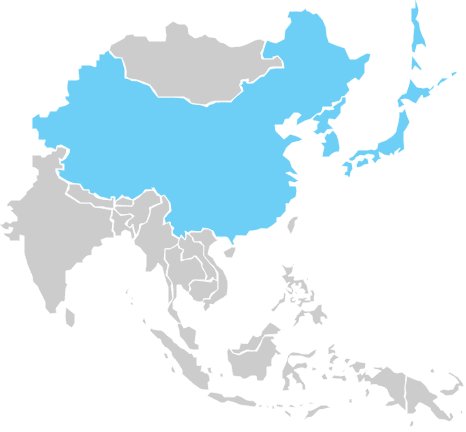
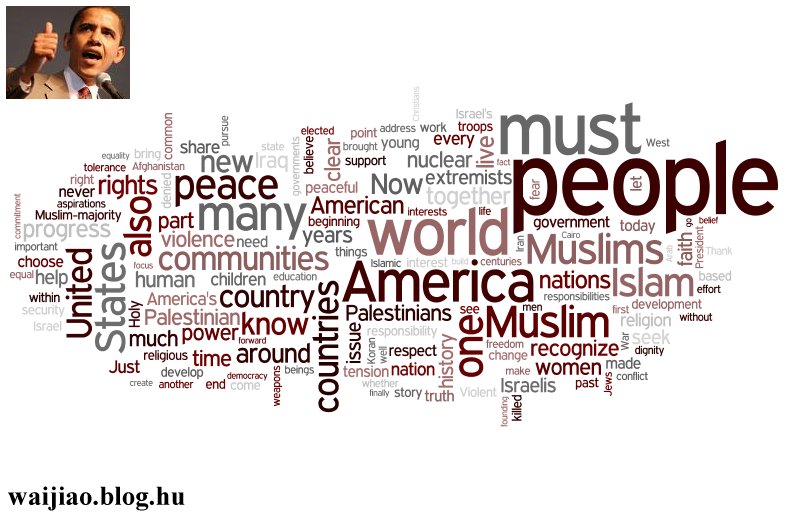
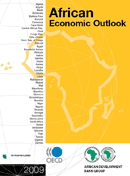
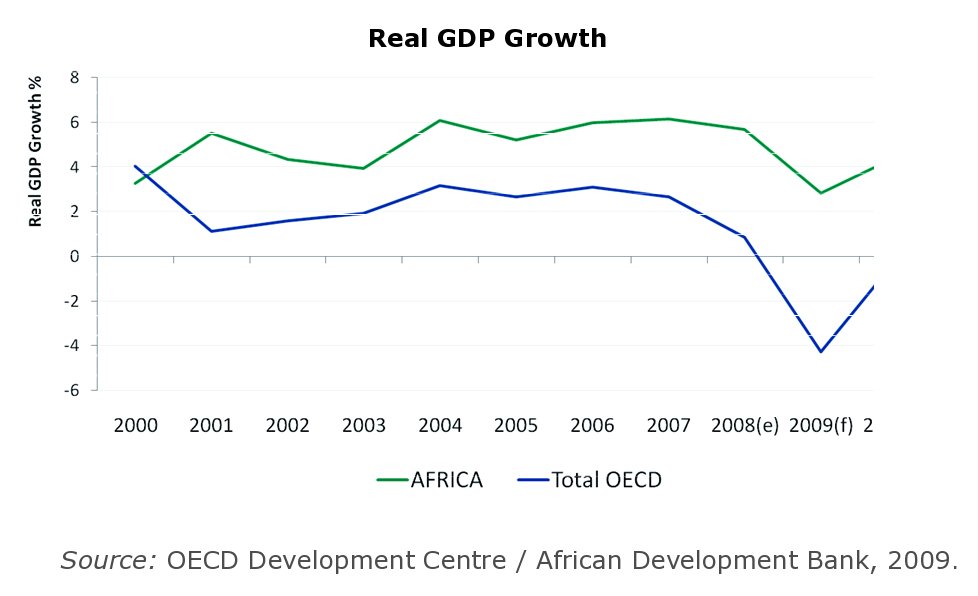
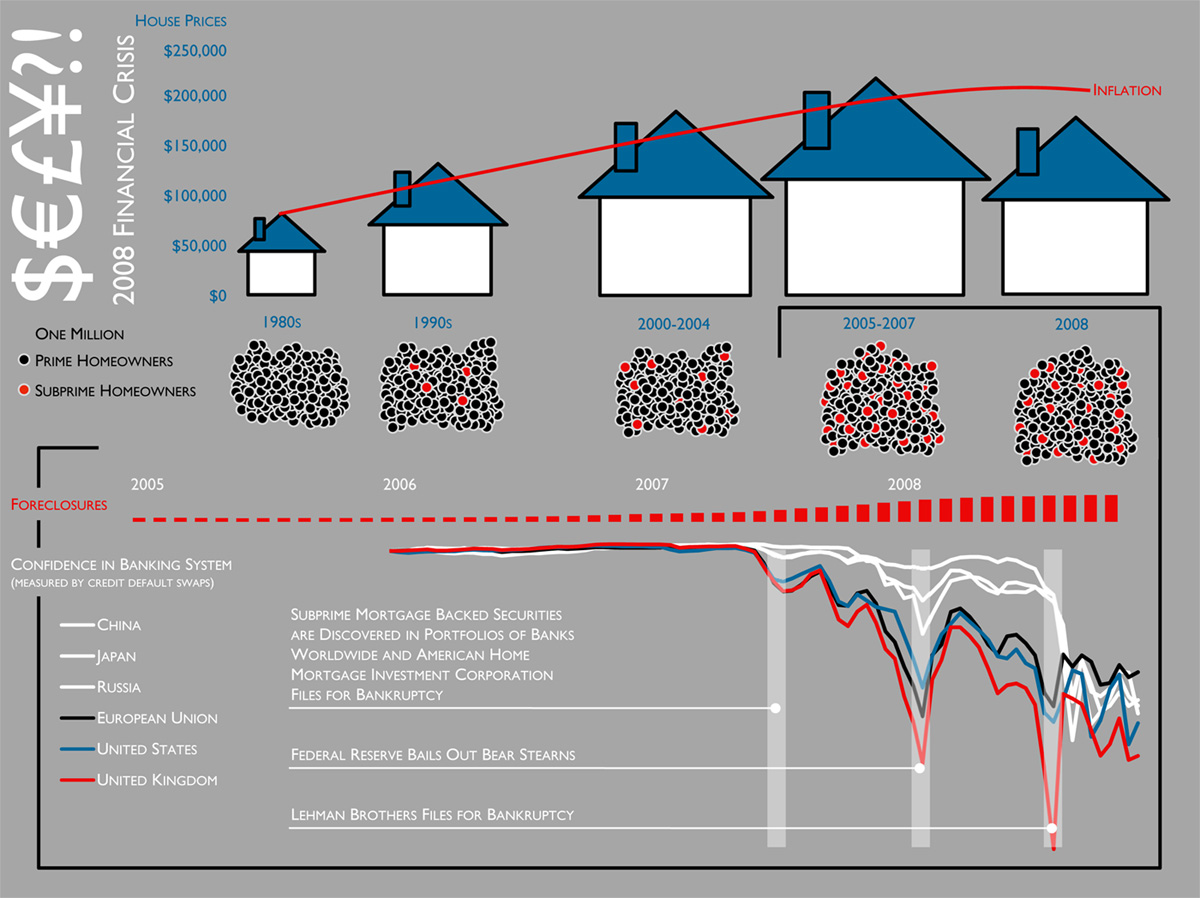
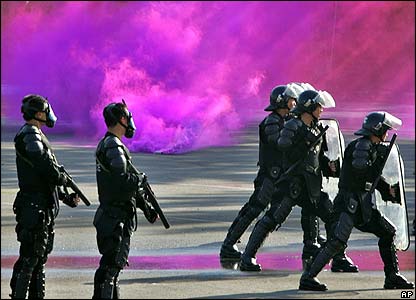
.gif)
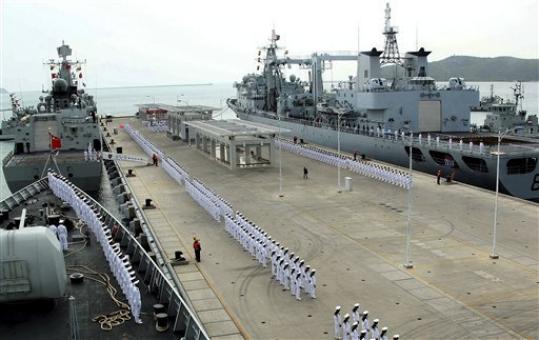
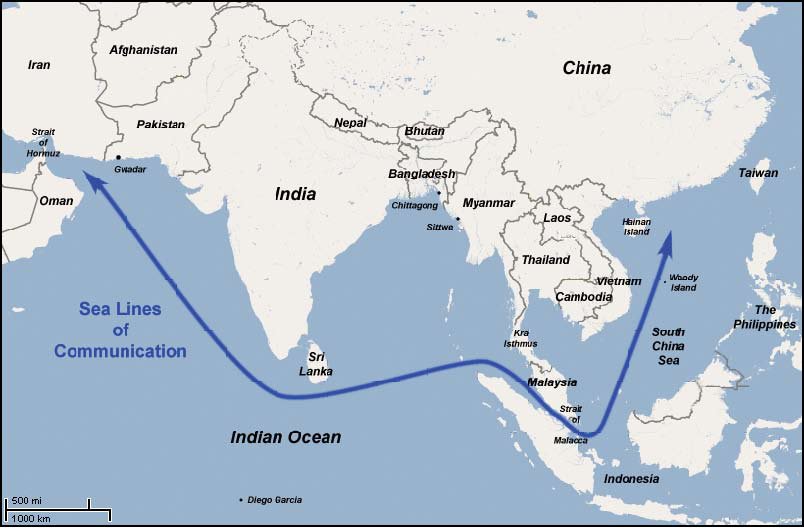
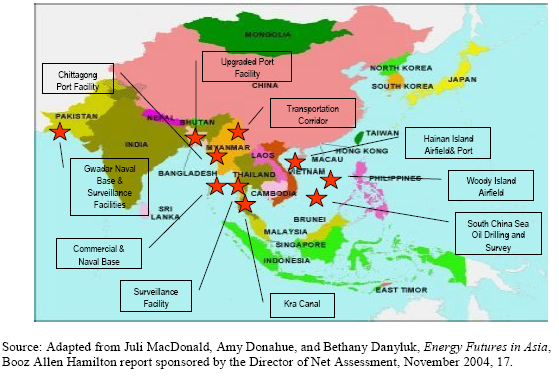

 http://blog.foreignpolicy.com/node/feed
http://blog.foreignpolicy.com/node/feed